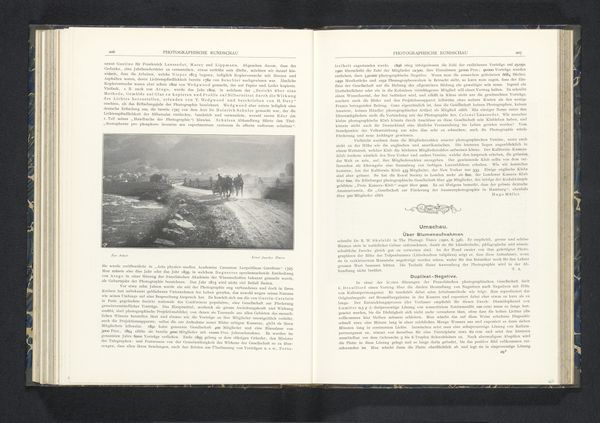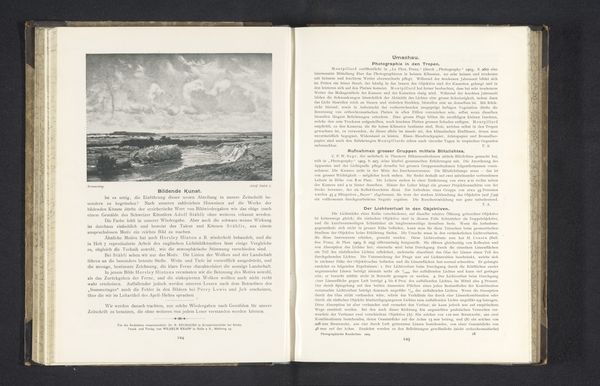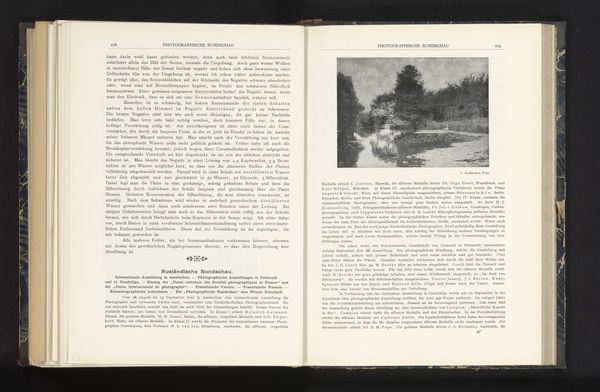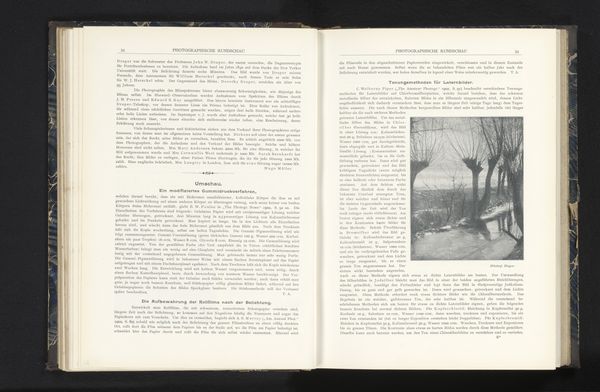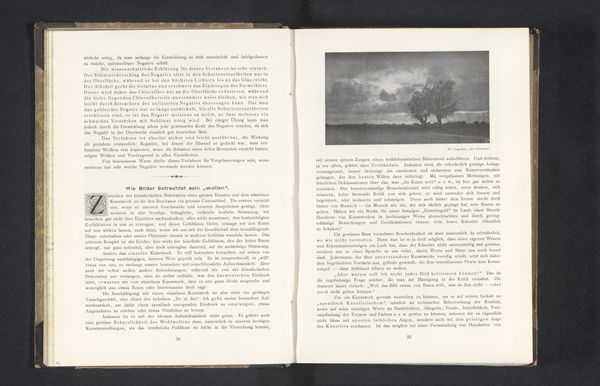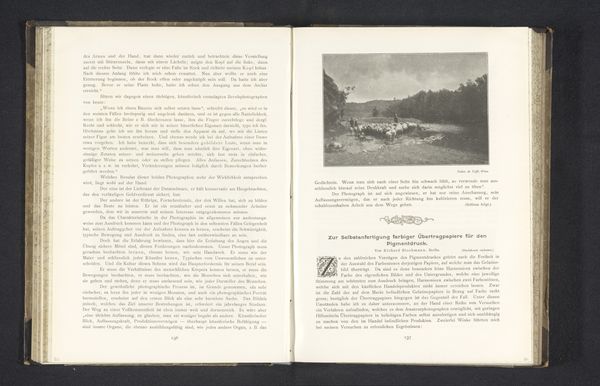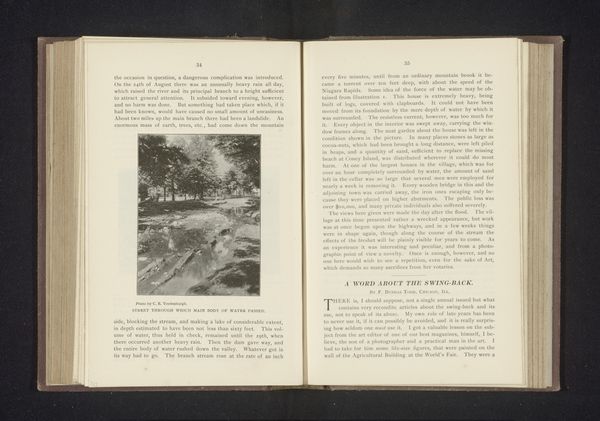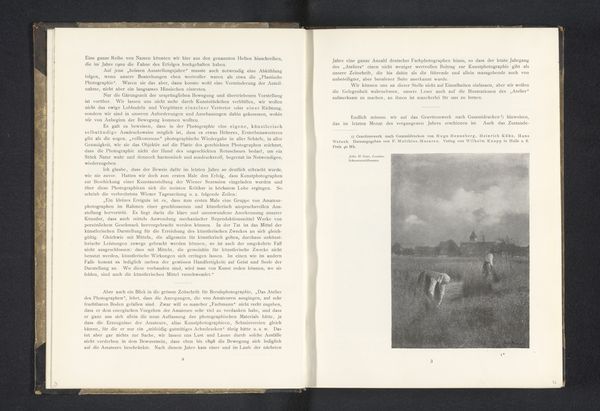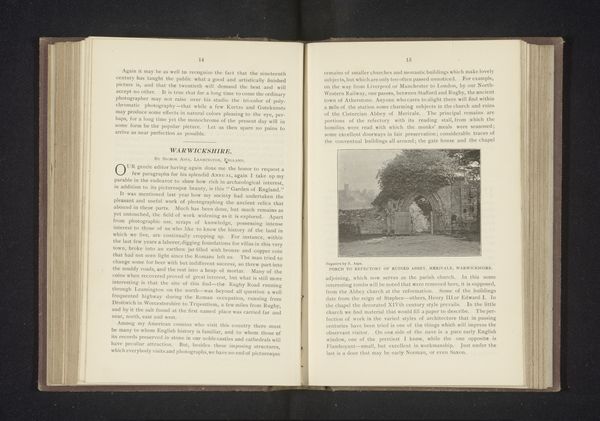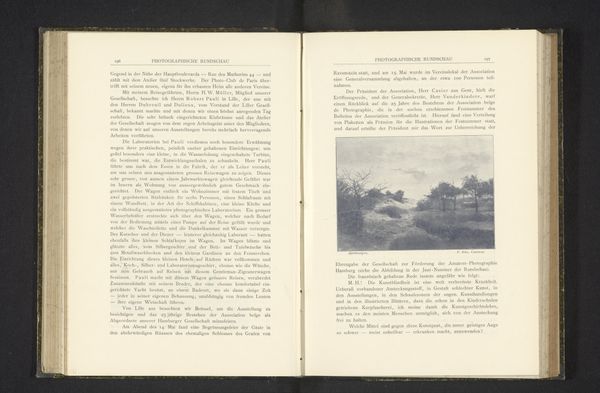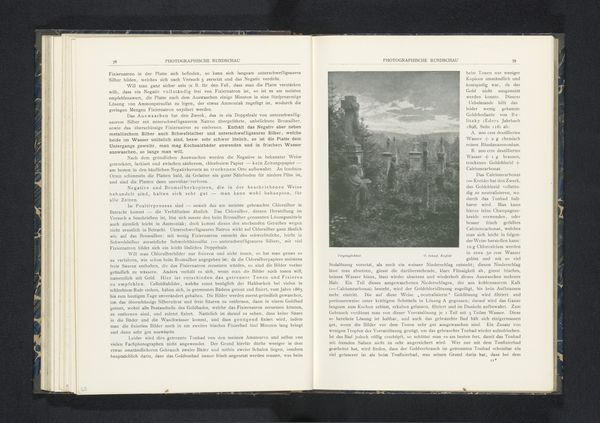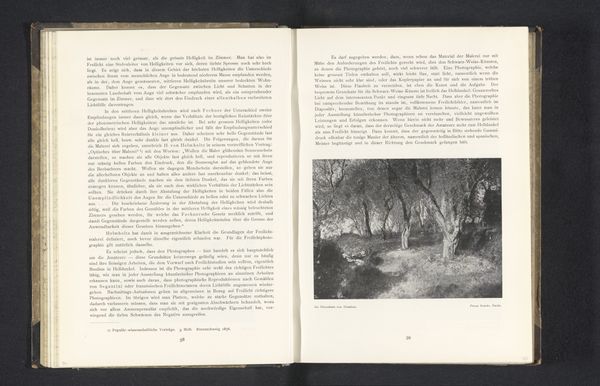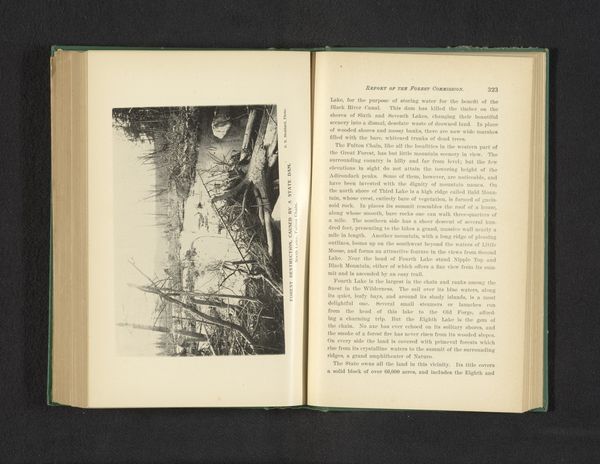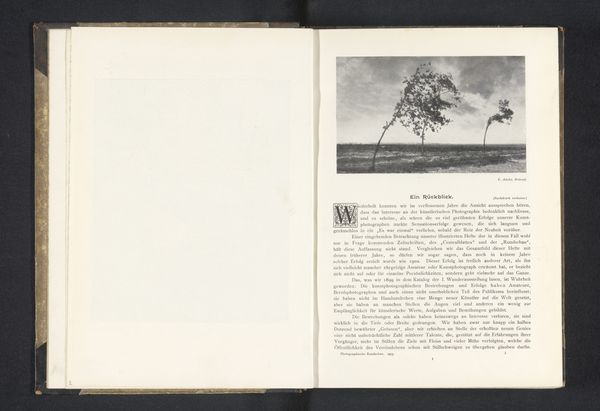
drawing, print, paper, photography
#
script typeface
#
drawing
#
type repetition
#
aged paper
# print
#
landscape
#
german-expressionism
#
paper
#
photography
#
journal
#
stylized text
#
thick font
#
handwritten font
#
letter paper
#
historical font
#
columned text
Dimensions: height 114 mm, width 158 mm
Copyright: Rijks Museum: Open Domain
Editor: This is a reproduction of a landscape painting by Adolf Stäbli, dating from before 1903. It seems to be printed in a journal or book. The mood is quite somber and dramatic, mainly because of the storm. How would you interpret this work? Curator: Seeing this landscape reproduced within what appears to be a journal gives it a particular context. Pre-1903, mass media was burgeoning. Think about what role these journals played in shaping public perception of art and nature. How does seeing this artwork filtered through the lens of publication impact your understanding of the piece itself? Is it documentation? Dissemination? Editor: That's interesting. I guess I hadn't considered how its presence in a journal would affect its interpretation. It feels more like information being distributed than purely an aesthetic experience. The image also fits within this historical moment with emerging mass culture; a political tool for a rising nation? Curator: Precisely! Consider the socio-political forces at play. Stäbli lived during a time of significant nationalistic movements in Europe. Landscape painting was often used to promote national identity and pride. Seeing this image in print likely amplified those messages. Do you think this particular landscape with its looming weather feels inherently nationalistic, or does its function in mass-media lend that quality? Editor: Hmmm, it’s hard to say. I suppose the dramatic weather *could* be read as symbolic of a powerful, almost defiant, national spirit... or maybe it’s just a storm! This new reading encourages a more complex perspective, thank you. Curator: Absolutely! These historical contexts shape our understanding in interesting ways. Examining its presence in the world, through these printing and distribution technologies, opens us up to deeper considerations about this art's function and public perception at that time.
Comments
No comments
Be the first to comment and join the conversation on the ultimate creative platform.
